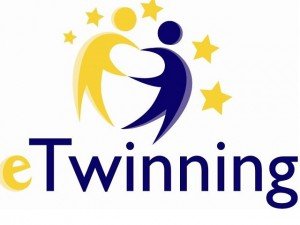Weekly Roundup
 THE EVER-GROWING NEED OF SOFT SKILLS
THE EVER-GROWING NEED OF SOFT SKILLS
According to a recent research, the soft skills training market is only going to grow in 2017-2021. Soft skills or “people skills” are the character and interpersonal traits that characterise a person’s relationships with other people. In the workplace, soft skills are considered a complement to hard skills, which refer to a person’s knowledge and occupational skills. There are 6 most valued soft skills that enable someone to interact effectively and harmoniously with other people:
- Communication skills. Express yourself well, whether it’s writing a coherent memo, persuading others with a presentation or just being able to calmly explain to a team member what you need.
- Passion for learning and the ability to continue to grow and stretch your skills to adapt to the changing needs of the organisation
- Teamwork and collaboration. Being a leader, sometimes being a good follower, monitoring the progress, meeting deadlines and working with others across the organisation to achieve a common goal.
- Problem-solving. Solving a tough business problem or participate in the solution. Be able to approach the problem and involve others.
- Critical observation. Able to analyse and interpret collected data.
- Conflict resolution. Skill to develop mutually beneficial relationships in the organisation so you can influence and persuade people, able to negotiate win-win solutions to serve the best interests of the company and the individuals involved.
As the research done by Technavio shows companies are expanding their business to a global and regional level, thus increasing their competition. This has led educational institutions and companies to adopt training programs for students and employees. The report considers the revenue generated by vendors providing soft skills training solutions through traditional as well as online platforms. Technavio’s analysts forecast the soft skills training market in Europe to grow at a CAGR (the compound annual growth rate) of 33.46% during the period 2017-2021.
 EYE2018
EYE2018
With two successful editions in 2014 and 2016, the European Youth event is back for another round. Over 7,000 young Europeans gathered last time in Strasbourg for the EYE2016 to meet and debate with European decision makers under the motto “Together we can make a change”. As new dates, a first draft of the programme and the themes will be announced in May 2017, the groups are welcome to register starting October 2017 with their innovative ideas to make the next event successful. After the registration, the participants, Europeans aged between 16 and 30 years, will also get the chance to contribute to the programme by proposing to organise an activity. The European Youth Event is a unique experience that grants young people the power to shape Europe’s future, influence EU policies and gives an opportunity to have your say and to bring your ideas for a better Europe.
 TRACKING THE IMPACT OF ETWINNING PROJECTS
TRACKING THE IMPACT OF ETWINNING PROJECTS
The Monitoring eTwinning Practice (MeTP) Maturity Model on which the pilot activity was based, was developed to provide a tool to assist in tracking the impact of eTwinning projects on teachers’ practice and competence development in two areas, pedagogical competence and digital competence, as reported by eTwinners. The pilot involved a group of mostly first-time eTwinners, 35 teachers from 19 countries, and was implemented over a period of 8 months (December 2014 – July 2015).
With the aim to discover what impact being involved in an eTwinning project had on improving teachers’ pedagogical and digital competence development over an 8 month period, using a self and peer assessment model the activity had a double approach:
- To explore whether there was a reported development in practice and competence as a result of involvement in eTwinning projects
- To test and evaluate the use of the MeTP reflection tools and processes of self- and peer assessment, to help teachers progress with and track their competence development while carrying out eTwinning projects
The report concludes that the extension of the MeTP model opens up the benefits of self and peer reflection to the whole eTwinning community and is certainly worth investigating by eTwinning’s pedagogical monitoring team. It is hoped that the MeTP pilot activity evaluated in the report will be of use in further shaping the pedagogical direction of eTwinning in the coming years, and in reaching out towards political audiences and other education stakeholders with a view to embedding eTwinning in school education systems.
You can read the full report here.
 EDUCATION IS THE KEY FOR DEVELOPMENT OF EVERY SOCIETY
EDUCATION IS THE KEY FOR DEVELOPMENT OF EVERY SOCIETY
During a conference of the ASEM (Asia-Europe Meetings) on March 30-31 delegates from Asian and European countries, including Finland, Japan, India, Korea and Indonesia have met in Hue, Vietnam.
“The mission of the education sector becomes stronger in the context of a turbulent globe. Terrorism, trans-bordered criminals, new diseases, environmental disasters and climate change are challenging the young generation of global citizens,” Vietnamese Deputy Prime Minister Vu Duc Dam said.
The delegates agreed that international co-operation would help foster innovative education as each country gets an opportunity to learn from others. During the first plenary session, Finland was noted as the leading and having most successful models of innovative education in the world. According to Finnish Deputy Minister of Education and Culture Anita Lehikoinen, “We offer flexible education programmes for meeting individual needs, and each student gets a chance to learn basic skills, soft skills and also essential skills in ICT to be competent citizens.”
Deputy President of the Korean Educational Development Institute, Dr Bang-Ran Ryu noted that ASEM countries’ co-operation will create a platform to assist those who want to follow tertiary educations abroad.
The Asia-Europe Meetings are shrinking the gap between the two continents and highlighting the role of education, which is crucial in building a responsible and internationally co-operating generation.
 SMART SCHOOL
SMART SCHOOL
Imagine Apple technology embedded across a whole school and as part of the curriculum. For Dalton St Mary’s CE Primary School, however, it is not a fiction anymore. All the pupils from 2nd to 6th grade have their own iPad and teachers use the technology to teach lessons to enrich the learning experience.
The first Innovate, Motivate and Educate through Technology exhibition saw international visitors from Poland among those demonstrating their products and sharing their knowledge with around 100 teachers and Dalton St Mary’s CE Primary School as the Cumbria Regional Training Centre for Apple technology.
Hannah Croskery, the deputy head at Dalton St Mary’s said: “The feedback has been overwhelmingly positive. It was a real success. It was an international exhibition, with Jakub and Agnieszka coming from Poland with Explain Everything, which was beyond exciting. Every single exhibitor said they would like to come back next year. The digital learners had such a good day. They really enjoyed showcasing how they use their iPads.”
The event at Abbey House Hotel on March 22 included technology firms showing how teaching and learning can be transformed into classrooms by using technology to impact teaching and learning positively.
Prepared by Simona Varankaite

